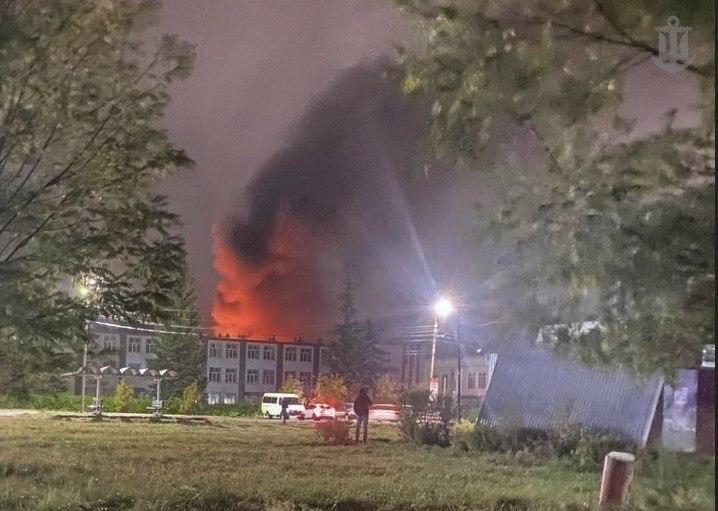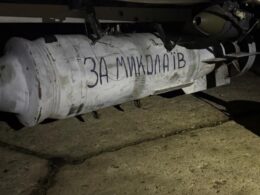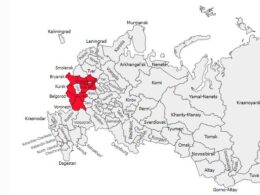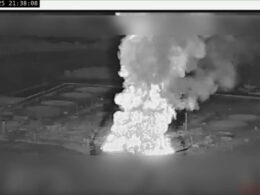Ukraine's Armed Forces General Staff confirmed a missile strike on Russia's Elektrodetal plant in Karachev, Bryansk Oblast, which manufactures products for military purposes.
The operation was carried out by rocket troops and artillery units in cooperation with other Defense Forces components.
The attack on Elektrodetal is reportedly the first known direct significant strike specifically on this factory.
Four products were launched at JSC Karachev Elektrodetal Plant with a flight range over 240 kilometers, according to the General Staff. The plant is located 116 km from the border with Ukraine.
"Explosions and fire were recorded on the facility's territory, the results of the strike are being clarified," it stated.
Commander of the Naval Forces Oleksiy Neizhpapa specified that Neptune missiles were used to strike the Russian enterprise.
The attack occurred on the night of 29 September. Bryansk Oblast governor Oleksandr Bogomaz warned about missile danger in the Karachev district but did not report on the consequences. Russian propaganda Telegram channel ASTRA, citing local residents, confirmed that JSC Karachev Elektrodetal Plant was attacked in the region.
The facility specializes in developing and manufacturing electrical connectors for both military and industrial applications. According to Telegram channel Exilenova+, the plant is a manufacturer of components for 1,500 enterprises within the Russian defense industry.
Karachev Elektrodetal Plant produces various electrical connectors for military and general industrial applications, including low-frequency, high-frequency, and combined connectors. The products are used in aerospace, electronics, instrumentation, and other industries. These include connectors for printed circuit boards, military equipment, aircraft, antennas, base stations, and other systems, as well as components for various measuring instruments.
According to a military observer, OSINT analyst, Tatarigami, the Electrodetal plant in Karachev, sanctioned by the US Treasury’s Office of Foreign Assets Control, is known for producing “Chimera” FPV drones.
Chimera FPV drones are advanced FPV (First-Person View) drones designed for high-performance and long-range flying. Some models extend the FPV range to several kilometers, offer enhanced flight control and stability, and deliver crystal-clear HD video for immersive flying experiences
Key features of Chimera FPV drones include a built-in air units that enables high-definition video transmission in FPV goggles. They have strong and lightweight carbon fiber frames designed for durability and minimal resonance. These drones are equipped with powerful motors and electronic speed controllers (ESC) that allow high speed and agile maneuvering, with top speeds reaching up to 140 km/h. The long flight times are supported by high-capacity 6S LiPo batteries. Some models feature GPS modules for precise positioning, return-to-home functionality, and waypoint navigation.
On 28 and 29 September 2025, Ukraine conducted several significant counterattacks against targets in Russia, and simultaneously, Russia launched heavy attacks on Ukrainian territory.
On 28 September, neighboring Belgorod reported a missile attack and power supply problems.
Russian strikes launched on the evening of 28 September included drones, heavy artillery, and FPV drones targeting communities in eastern and southern Ukraine, such as the Dnipropetrovsk Oblast, resulting in civilian injuries. Russia also launched one of its largest aerial offensives on Kyiv and other Ukrainian cities with nearly 600 drones and dozens of missiles over 12 hours, causing several civilian casualties and damages. According to Kyiv city Mayor, there were 14 injured and four people dead due to the attack on Kyiv on 28 September.





